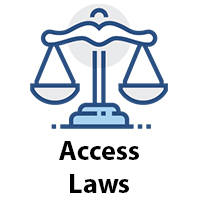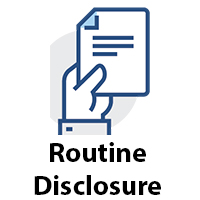
Access to Information
The Region of Durham is committed to being an open and transparent government. Under access to information laws, you have the right to access Regional records. To learn more about your access rights and how you can obtain Regional information, select the tabs below.
Access to Information Laws
The Region of Durham must comply with the Municipal Freedom of Information and Protection of Privacy Act and the Personal Health Information Protection Act. Learn about your rights under these Acts by selecting the tabs below.
|
Municipal Freedom of Information and Protection of Privacy Act |
|
Who does it apply to? The Municipal Freedom of Information and Protection of Privacy Act (MFIPPA) applies to all local government organizations in Ontario, including the Region of Durham and our eight local area municipalities. What are some of my rights under this Act?
|
|
Personal Health Information Protection Act |
|
Who does it apply to? The Personal Health Information Protection Act (PHIPA) applies to individuals and organizations involved in the delivery of healthcare services. At the Region, this includes our:
What are some of my rights under this Act?
|
Obtaining Regional Information
The Region of Durham provides access to information in many ways. Learn how you can obtain our information by selecting the tabs below and watching the following short video.
| Access requests | ||||||||||||
|
You have the right to request information from the Region. If the information you seek is not routinely available, submit an access request using the instructions below.
|
||||||||||||
|
Routine disclosure is information that can be released to you without the need of a formal access request. Examples of this include ambulance call reports, as-built drawings, public health inspections and environmental records. To find out if the information you seek is routinely available, visit our contact us page on durham.ca and contact the department you believe has the information. |
||||||||||||
|
The Region’s Open Data service proactively publishes data in a free, accessible, and machine-readable format without restrictions from copyright, patents, and other mechanisms of control. Use and openly share raw data on topics like climate change projections, demographics, housing, and traffic. |
||||||||||||
|
Access and Privacy Office events |
||||||||||||
|
Frequently asked questions |
||||||||||||
|
Contact Us








